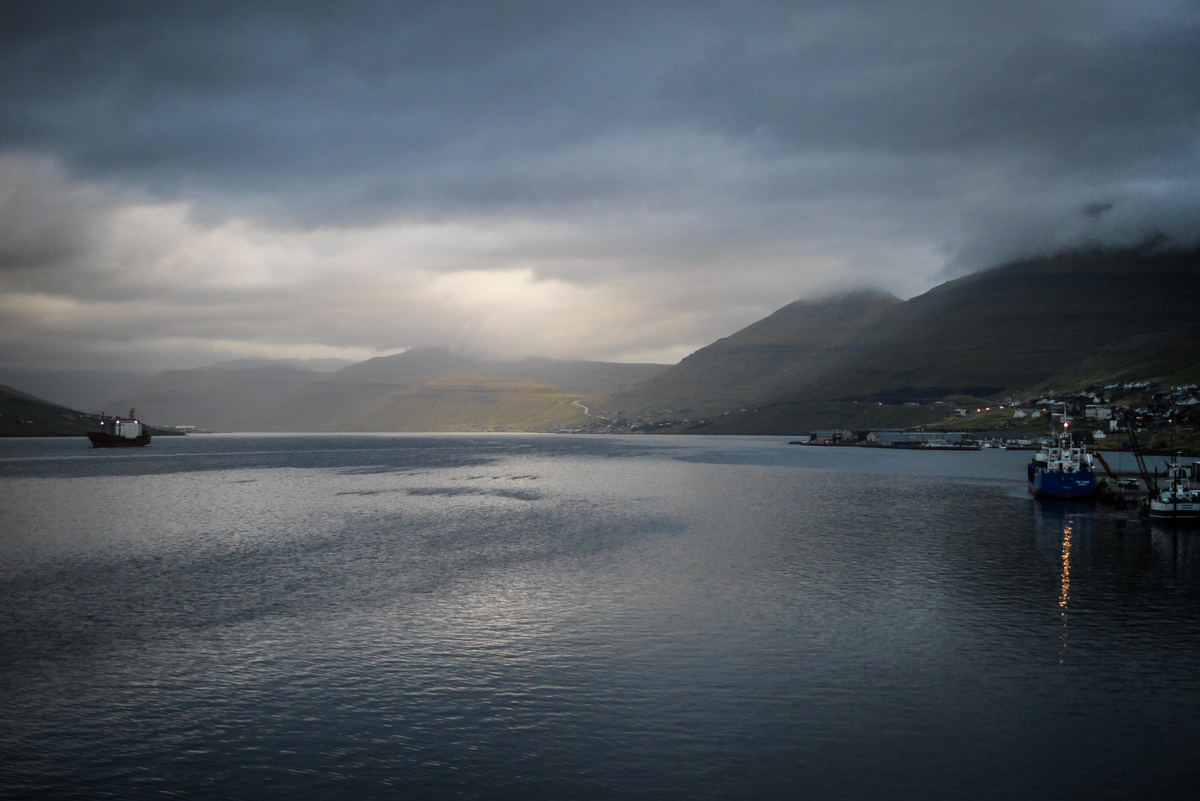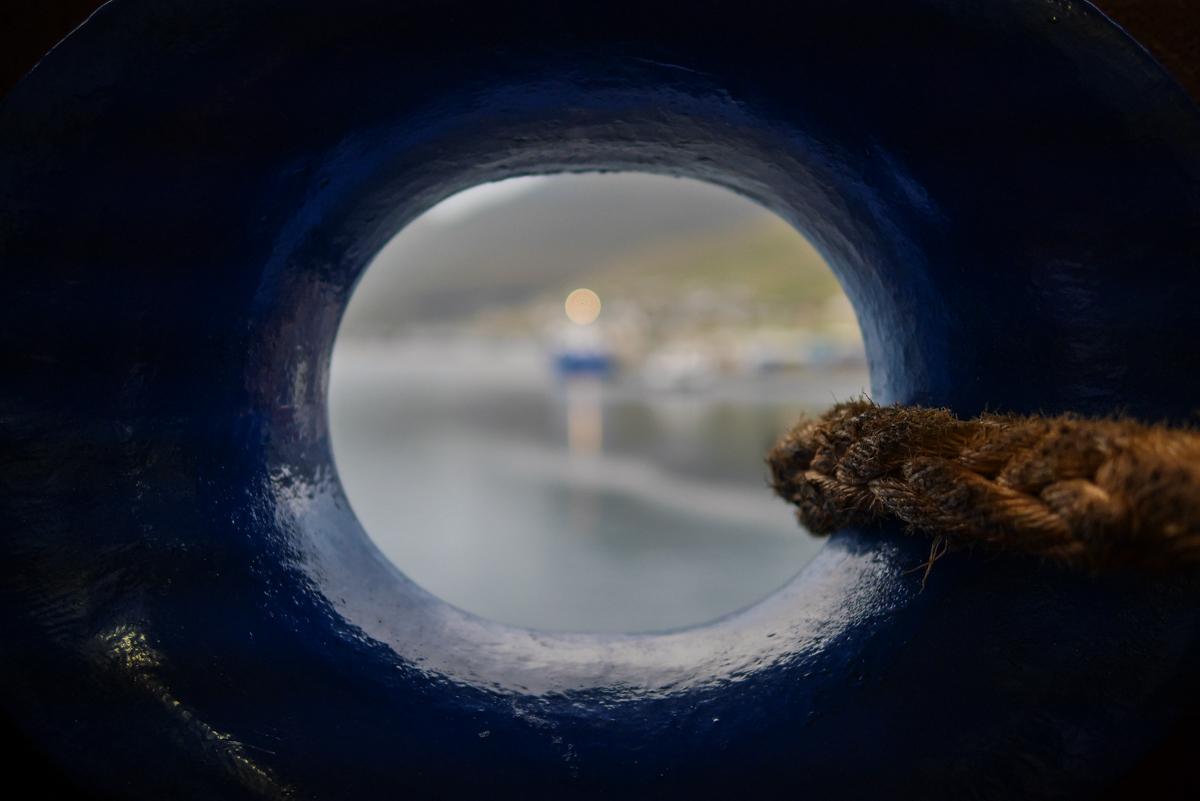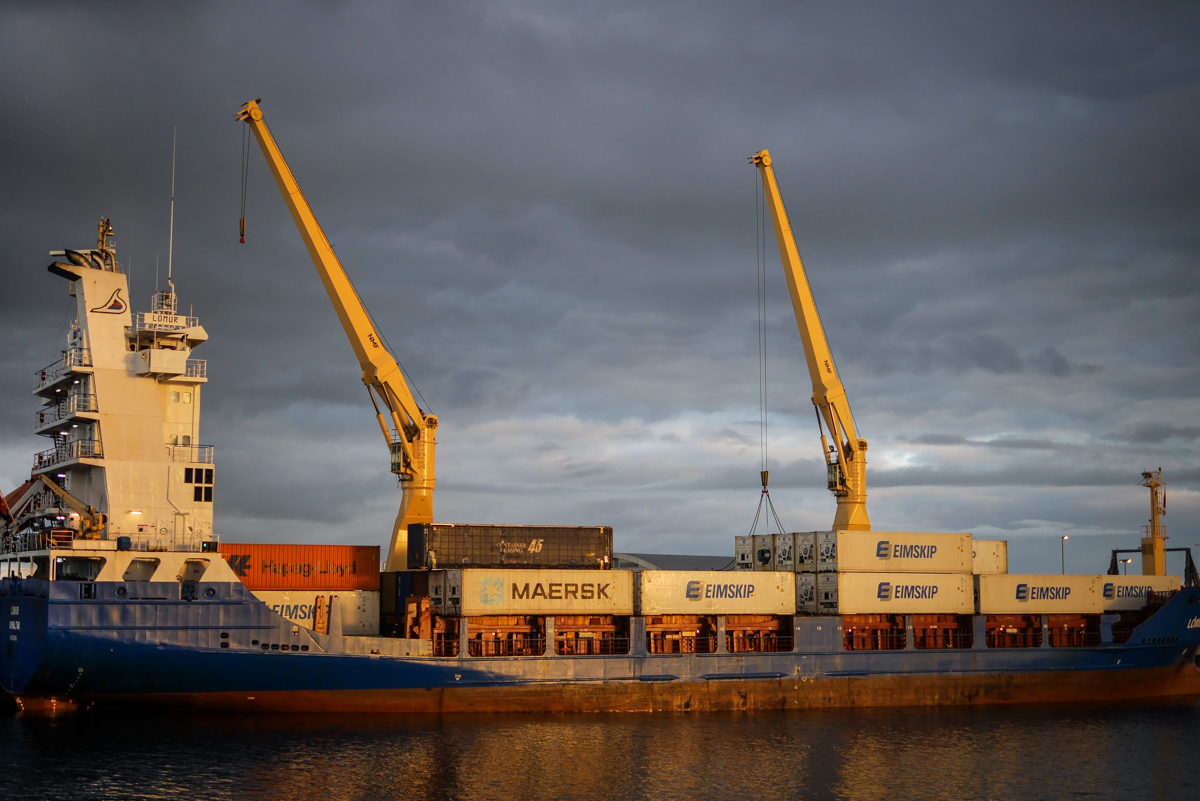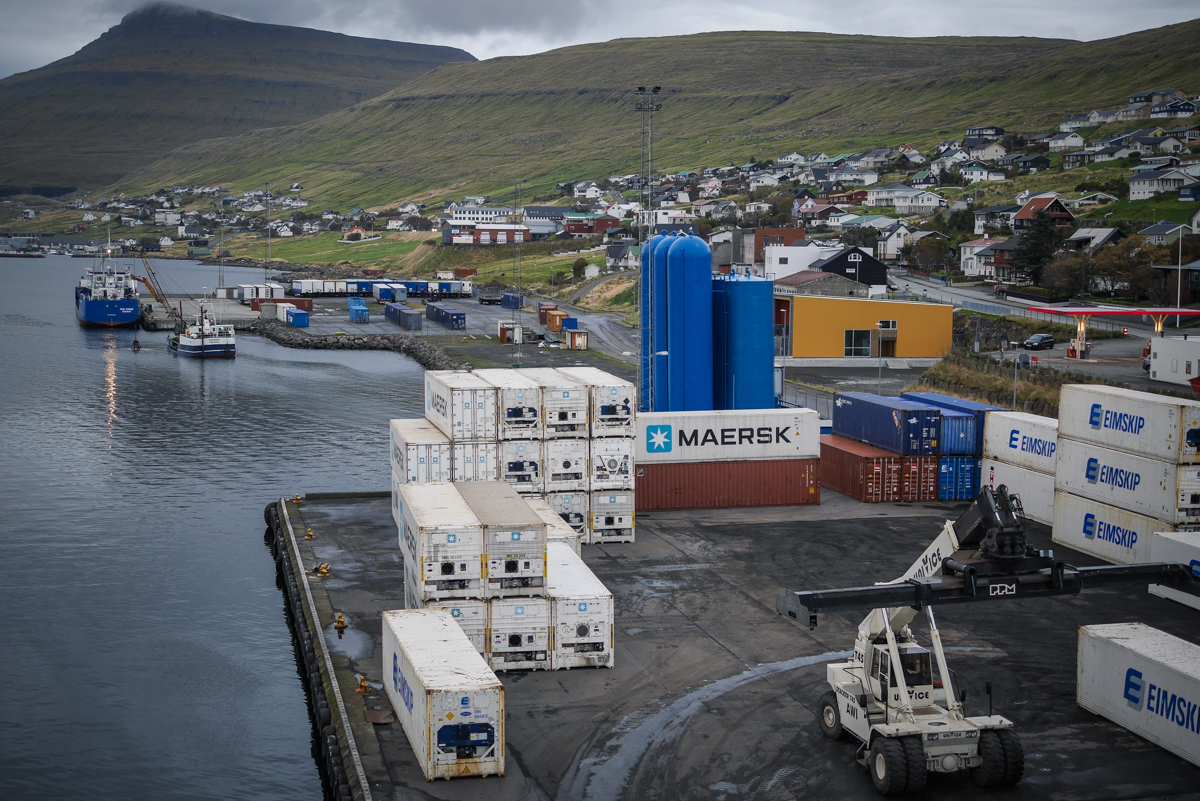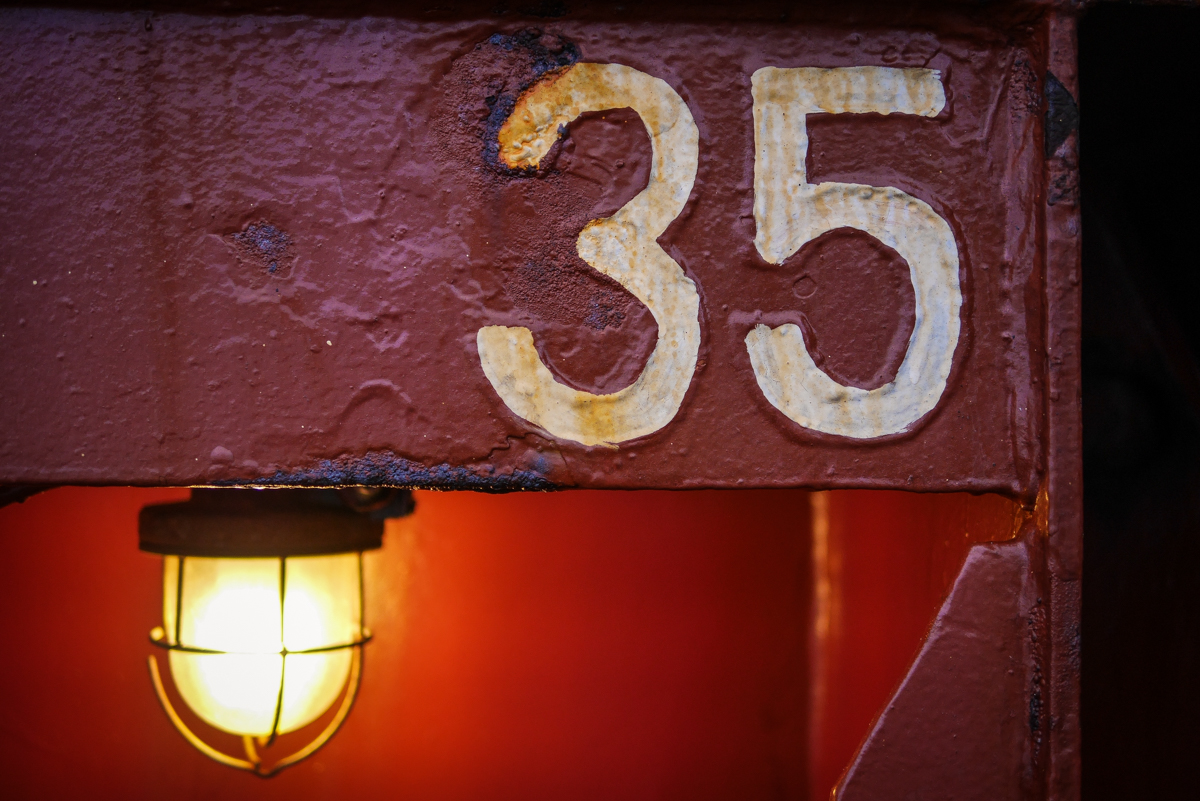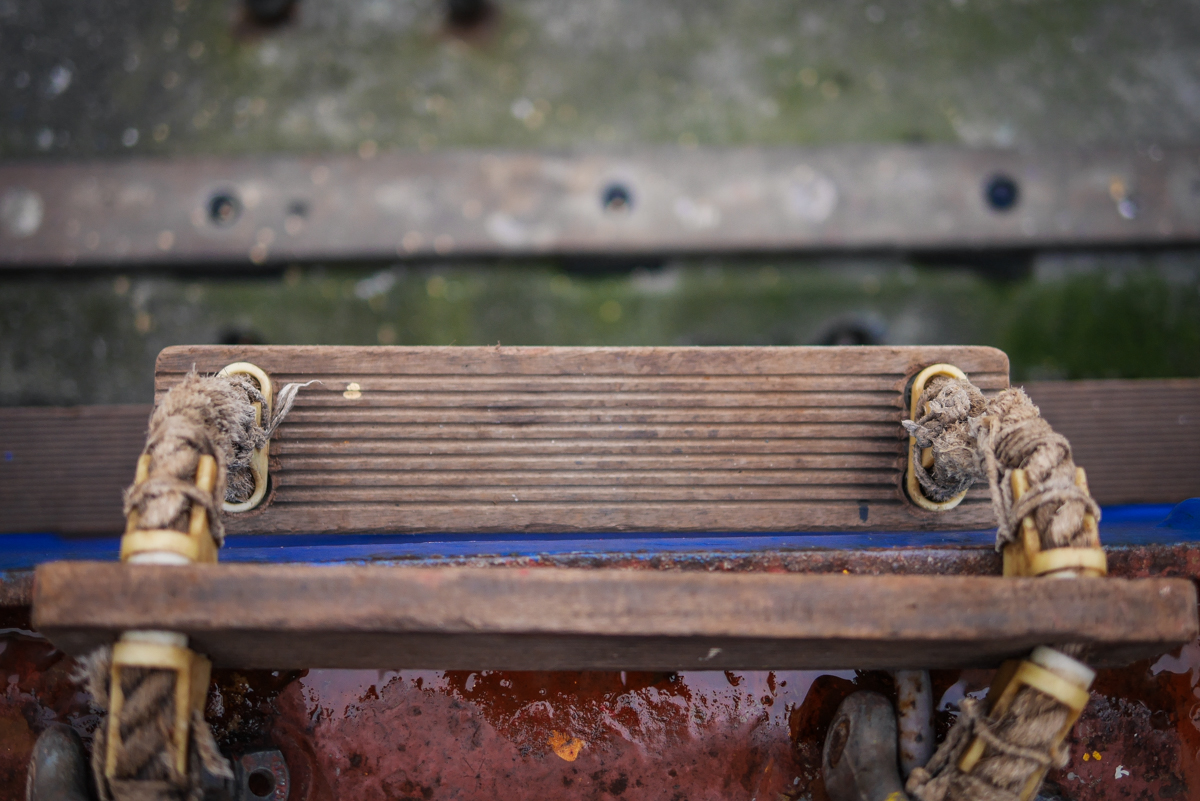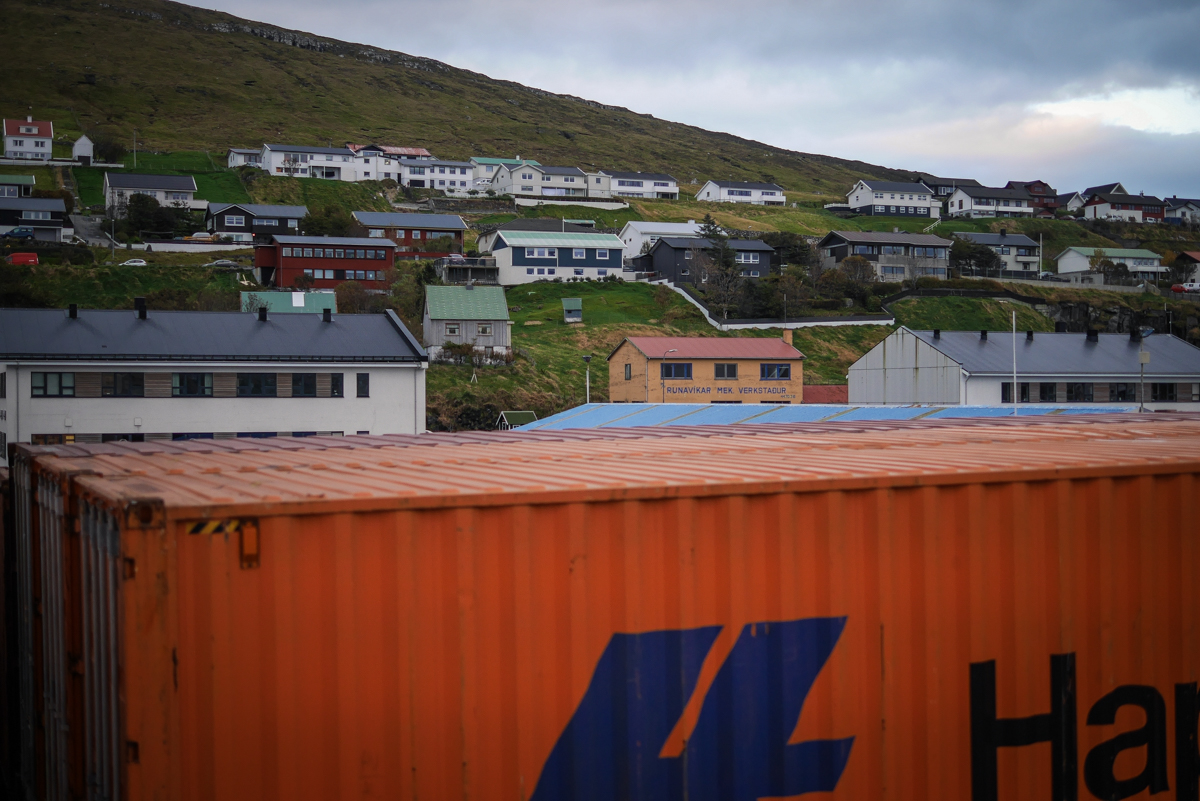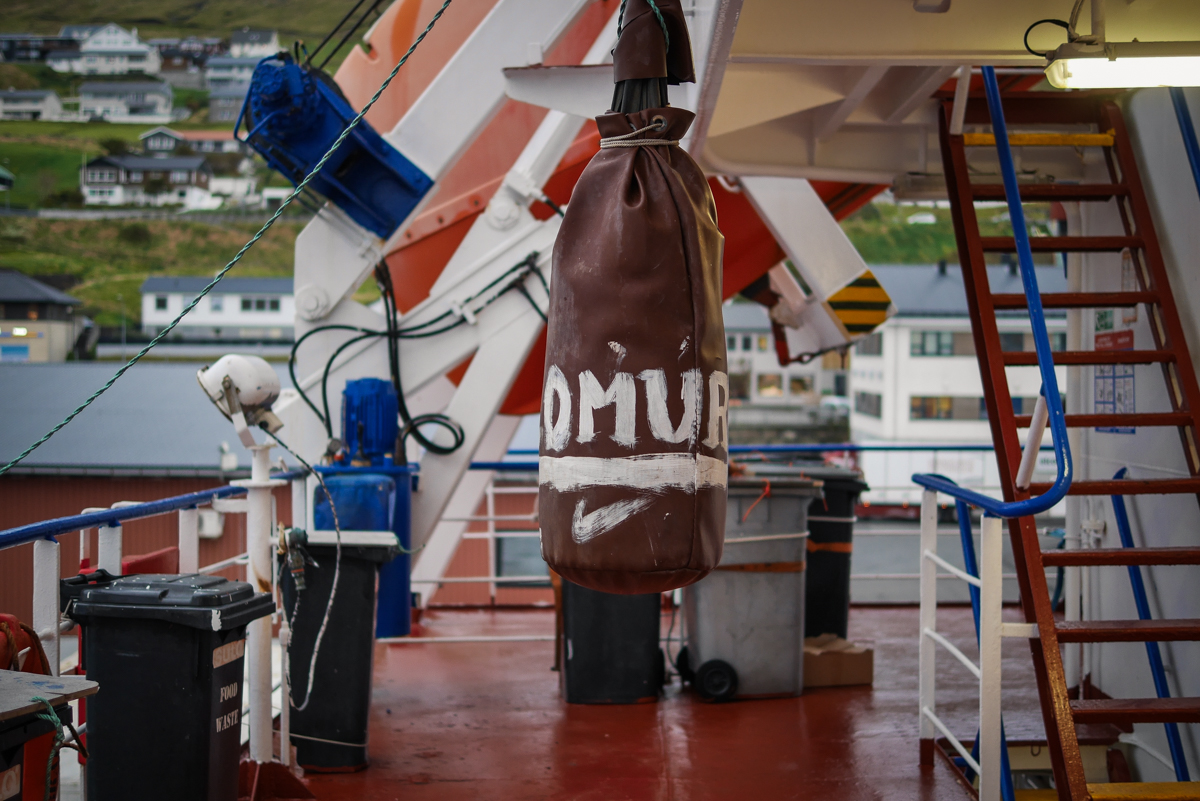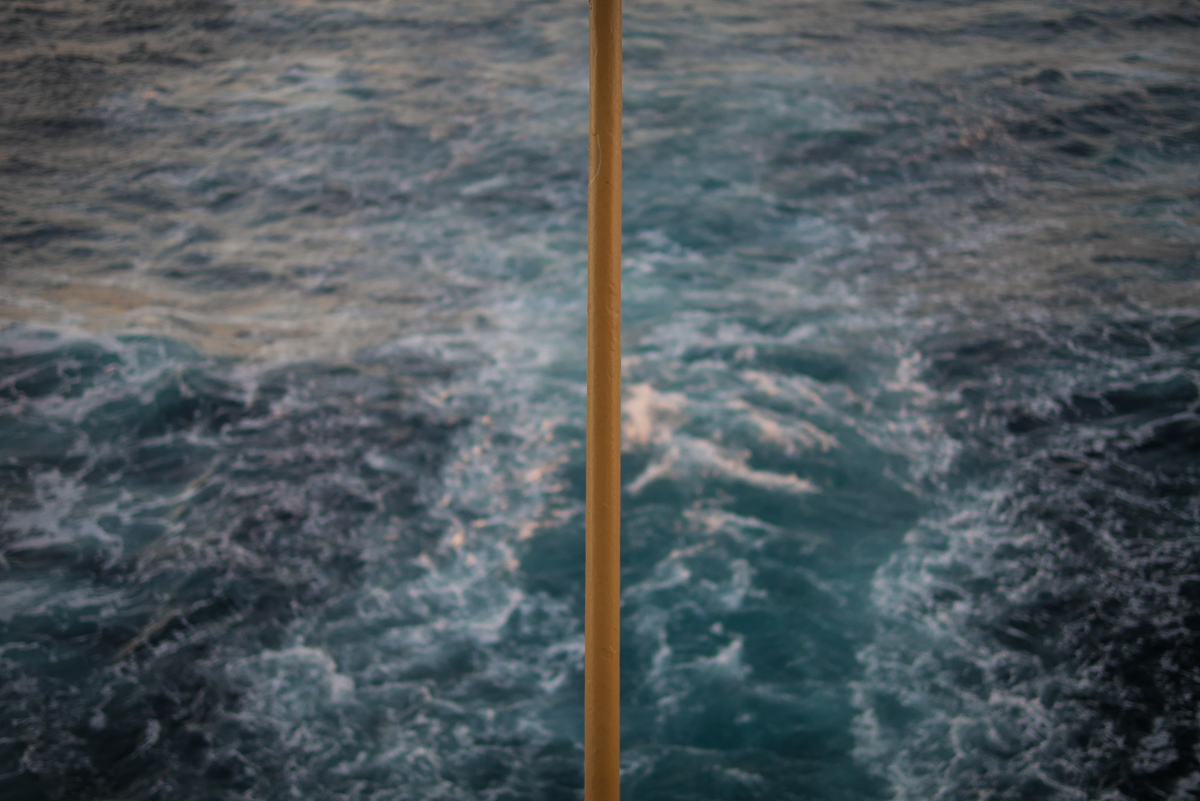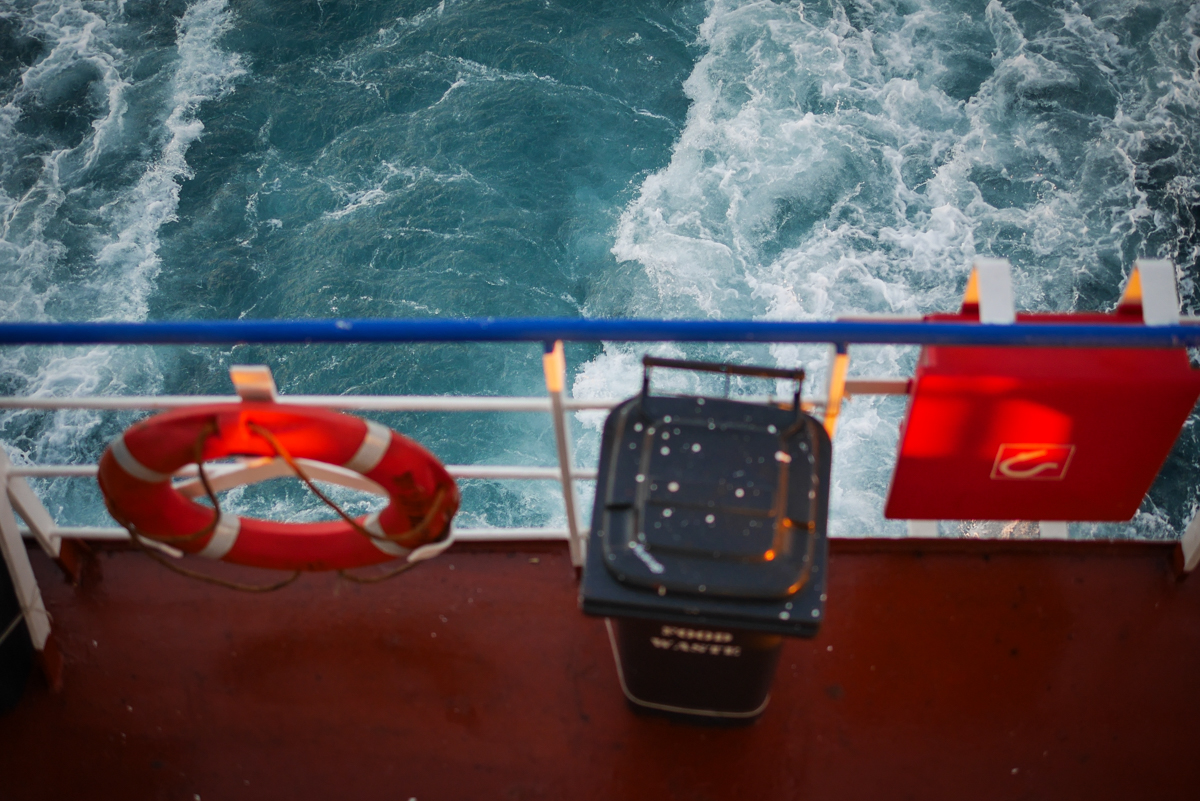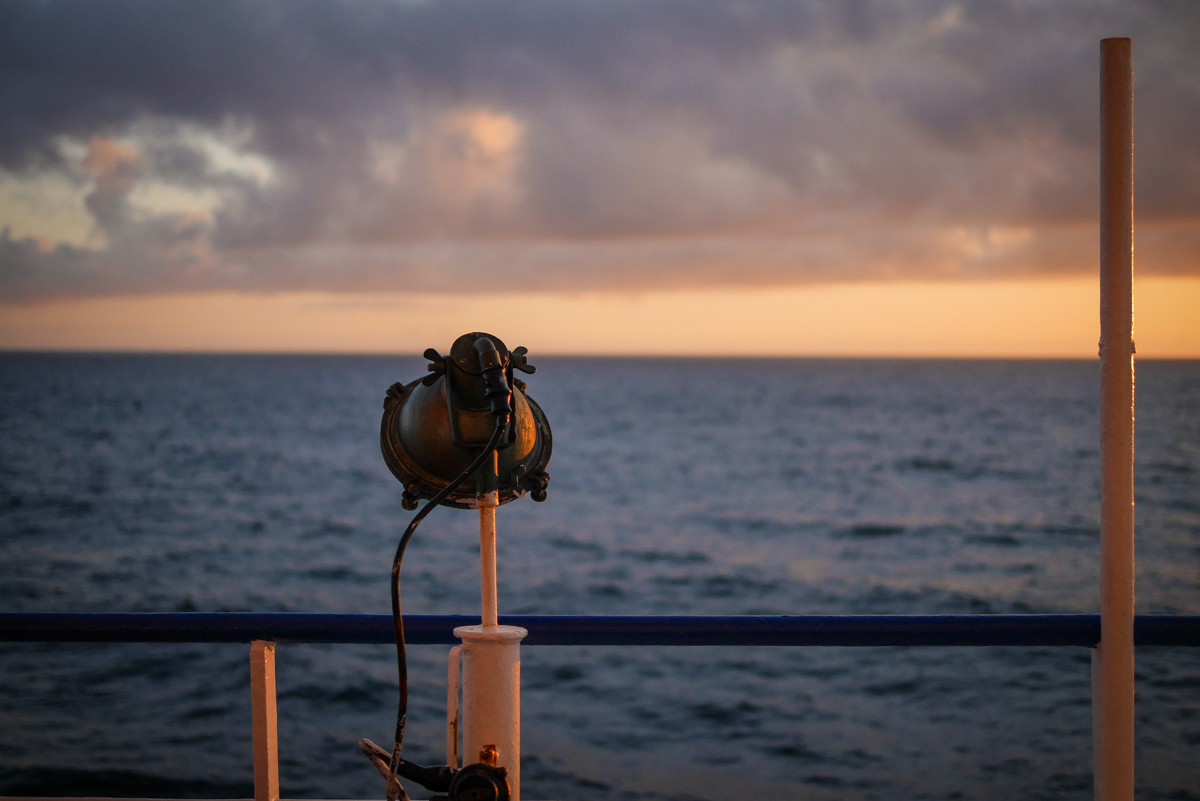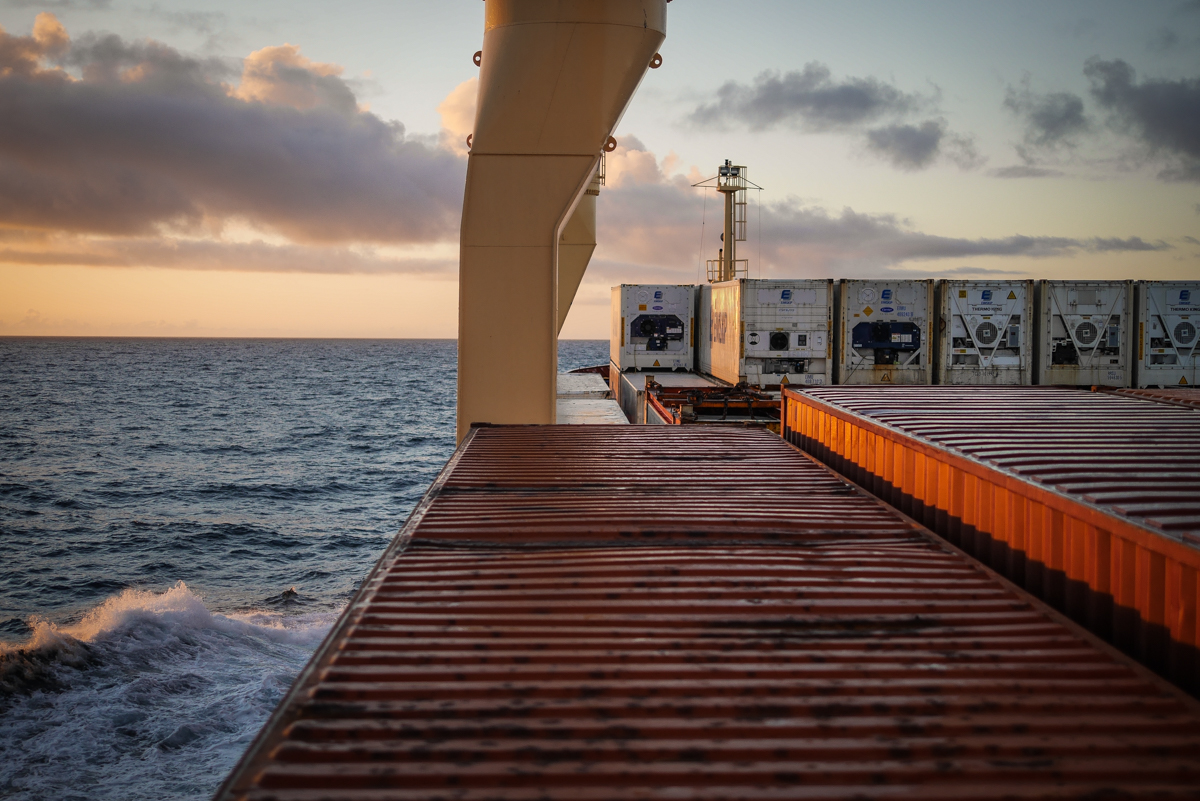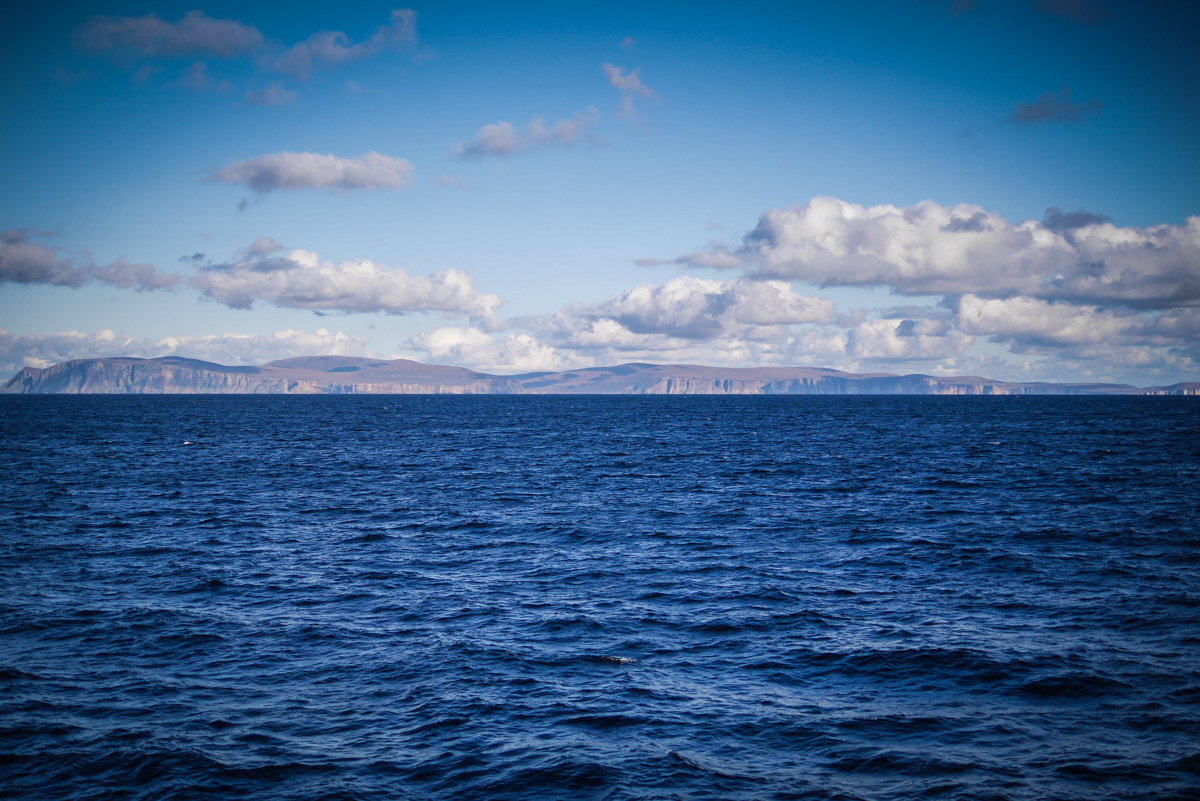Faroe Islands > Scotland, October 2016
The Lomur, the Captain and the crew
his time it has worked!
It’s on board of the merchandise vessel « Lomur » that I could cross the ocean, rare fact as a mere passenger, from the Faroe to Scotland. The cargo boat, registered in Gibraltar, had a crew of Russian officers and engineers, employed sailors from the Philippines, and was of german propriety, while being used by a Faroese ship company.
After hours of back and forth moves between the different contacts I had established along the day, I was integrated to the crew as a guest, and attributed the « 304 – Pilot » cabin, which was until that time used as a stock compartment. It’s the Captain Vladimir who welcomed me at the top of the tower in the navigation room, after I had repeatedly bother him by phone during the rest hours he was trying to enjoy between two convoys, and after I had taken the first officer Nikolay for his hierarchic superior, of whom I knew at the time only the gruff voice. First we hauled the footbike on the ship with a big rope, for one does not hop on such a ship as in a ferry boat, no giant doors nor bridge, one climbs a small ladder unrolled on a side, then I was introduced to my private quarters. The captain briefed me quickly, quite sea, departure estimated somewhere in the middle of the night, etc. No particular instruction, but to avoir slipping on the wet surfaces. I asked if I could be of help for anything, but the crew being complete, there were few shores that could be delegated. When I assaulted him with questions, perhaps for a bit too long, he reckoned that the job did change in the previous twenty years, a lot more papery to fill up nowadays, and, when I stumbled on him later in the evening, he was sorry that he could not spend time with me in the wheel room, for long administrative hours were ahead of him. I would not see him very much again. Later on, I met Sergey the second officer, who was joking about the fact that there was nothing much to do yet on those ships, everything being automatic, then the chief engineer who was stuck in the machine room, but who loved to go hiking in his natal taïga, speaking of the stunning rapidity of a female bear he’d met to give a dreadful paw punch. He showed me the noisy undergrounds filled with oil scents and high temperatures, where I discovered, quite amazed, the huge rotor that floods of purified fuel were nourishing. It was then making the main propeller turn and push all of us at an average speed of 18 nautical miles per hour towards the lands. I could see the automatic course corrector, a giant compass coupled to a solid arm, permanently rectifying our trajectory in order to maintain cap.
Departure was to happen around midnight (and arrival at 5pm the day after), once the all the containers would be charged on the long floating platform. On the quay all kind of machines were involved in the process, turning cranes, pallet haulers, crate lifters, under the orchestration of a logistics team that saw me, rather surprised, arrive by footbike and ask for the captain in order to board. It was salmon from the Faeroe mainly that was shipped, in brand new refrigerated boxes, from which I would observe the lights and small helixes, when I’d go out of my cabin to breathe some fresh air.
Meals were in the officers mess, where there was not many places, which would create a quick turnover during the time of service. Food was cooked by Henri from Manillle, who had seen nearly all the places in the world, with a preference for Brazil. I savoured on that evening a spicy rice with vegetables garnish, salads and garlic bread, and roasted porc that I could not refuse, by politeness, to honour. Next morning, the vegan would be challenged again with a breakfast made of two eggs and two sausages! And at lunch came a carrot stew, followed with deliciously fumed Russian cereals, chicken scallops with home made fries. When it’s about adopting local customs, one should not be too delicate.
The Lomur sailed in bright weather and calm sea, ripping through the marine air towards Scrabster on the Scottish north coast, precisely where I wanted to go. We passed again the Shetland Islands that I had observed from the Smyril’s Norona the night before, whilst going from Danemark to the Faroe.
I savoured each moment of that precious adventure, thinking about the chain of people that led me here: the fishing man I interrogated as it was still night just around the marketplace, ready to go back to sea after he had delivered his « butin à écailles » and who directed me towards the merchandise harbour; the sympathetic guard who was controlling the entrance and listened carefully to my explanations as an attempt to enter, and directed me towards the general quarters of a cargo ship company; the desk employee who seemed to know very much and listened to me as well and as much carefully, who revealed to me that a Lomur was indeed going to Scotland, and the only her captain could decide of my fate, he gave me his private number; the employee from the information center of Torshavn where I went looking or a phone, who helped me reach the master of the ship, pleaded even for my cause whilst receiving a grumpy answer in the midst of a docking procedure (the boat was just arriving!), it was to the company to decide he said briefly; the desk employee who received me a second time, and stated that as far as he was concerned he could see no objection to it, he would contact the man and I should call the captain again an hour later; that now feared captain himself whom I called myself from the center again, and whom, bothered in the middle of a sleep, made me call him back two more times, with an hour of wait, without any clear answer, with what sounded like reluctance and hesitations; the poor employee I bothered a third time, only to be told that it was now the germans, possessors of the vessel, that had to decide; those men and women from the ferry center who kindly gave me their mobile phones, all smiling when I finally received an answered that seemed at the time impossible, a positive answer, from the captain himself! I could not know if he gave his approval and asked necessary papers to the germans who had to align on his decision, or if the authorization came from the german headquarters. Thus I did not really know whom I had to seriously thank.
In reality, I had to thank every one of them, for what struck me then was the comprehensive and spontaneous kindness with which they all seemed to want to help me, as soon as my curious request was told. There was even a cheerful side in their nature, so prompt to give that kind of assistance, in a painful and unusual process, that I had not met yet in that way. It was something else than the kind of alimentary and hospitable generosity I had lived until then. In Norway, in Bergen, where I tempted the same roll dice, I had found myself quickly confronted to a cold bureaucratic wall, and I was prepared to have to bump into it here too.
I believe I have seized that this mood was something very common in the the country. If eventually I did not have time to ride on the small national territory, when I got through the 60km from Torshavn to Runavik where the Lomur was at dock, as I was absorbing greedily all the landscapes, facts and behaviours I could look at as if it was about engulfing in a very short period of the most of the shimmering realities of a culture and places yet unknown, I had the feeling of a very curious and separated world. Just as insular nations or communities often seem to be.
